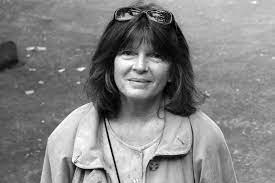
It’s always interesting the way Charles Simic makes something of nothing. It’s similar to young writers in school telling their teacher, “I have nothing to write about!” This while the world around them watches in astonishment, then clears its throat.
In “Secret History,” Simic goes old-school, using as his material the nothing which makes something of itself each day. The light in his room. The gloom before dawn. A spider. A lamp. Shoes by his bed.
And the refrain goes, “I’m your humble scribe.”
Dust balls make the poem, as does a lost pearl earring, which makes an appearance despite its disappearance.
The noise of falling snow? It’s here. The vanishing night? Present and unaccounted for. It will be back, after all. As will Simic, who will record it all.
I would say don’t try this at home, but where else would you try it? Many poetry journals out there, circa 2023, would reject such banal subject matter but, stubbornly enough, banalities are eternal, so they forever remain fair game.
Let’s find some of Simic’s secrets in broad daylight, shall we?
Secret History
Charles Simic
Of the light in my room:
Its mood swings,
Dark-morning glooms,
Summer ecstasies.
Spider on the wall,
Lamp burning late,
Shoes left by the bed,
I’m your humble scribe.
Dust balls, simple souls
Conferring in the corner.
The pearl earring she lost,
Still to be found.
Silence of falling snow,
Night vanishing without trace,
Only to return.
I’m your humble scribe.








